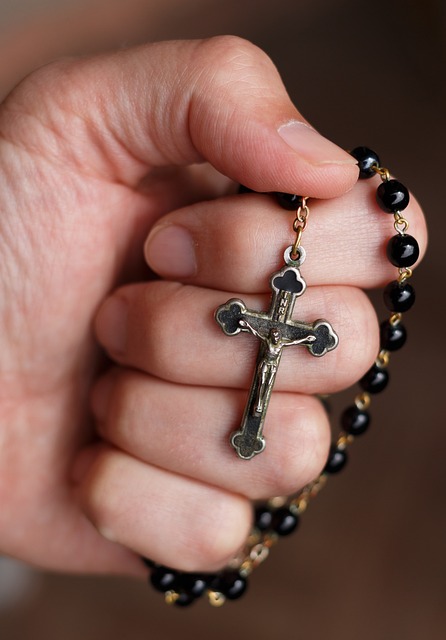Orthodoxy, also known as Eastern Orthodox Christianity, is a branch of Christianity that traces its origins back to the early Church. It is characterized by its adherence to traditional teachings and practices, as well as its emphasis on the authority of Scripture, the sacraments, and the teachings of the early Church fathers. Many believers argue that Orthodoxy is true due to its historical continuity, its theological coherence, and its transformative impact on the lives of its adherents.
Table of Contents
Historical Evidence Supporting Orthodoxy
Why Orthodoxy Is True
When it comes to matters of faith, it’s natural to seek evidence and historical support for one’s beliefs. In the case of Orthodoxy, there is a wealth of historical evidence that supports its truth. From the early church fathers to the preservation of ancient texts, these historical sources provide a solid foundation for the validity of Orthodox Christianity.
One of the most compelling pieces of historical evidence supporting Orthodoxy is the writings of the early church fathers. These influential figures, such as Ignatius of Antioch and Irenaeus of Lyons, lived in the first few centuries after Christ and were direct disciples of the apostles. Their writings not only provide insight into the beliefs and practices of the early church but also confirm the continuity of Orthodox teachings throughout history.
Furthermore, the preservation of ancient texts is another strong piece of evidence for the truth of Orthodoxy. The Orthodox Church has diligently preserved and protected ancient manuscripts, ensuring that the original teachings of the apostles have been faithfully passed down through the generations. This commitment to preserving the integrity of the scriptures is a testament to the authenticity of Orthodox Christianity.
In addition to the writings of the early church fathers and the preservation of ancient texts, archaeological discoveries have also provided historical evidence supporting Orthodoxy. Excavations in places like Jerusalem and Ephesus have unearthed artifacts and structures that align with the biblical accounts and corroborate the historical accuracy of the events described in the New Testament. These archaeological findings lend credibility to the claims made by Orthodox Christianity.
Another aspect of historical evidence supporting Orthodoxy is the establishment of the Ecumenical Councils. These councils, such as the Council of Nicaea and the Council of Chalcedon, were gatherings of bishops from around the world who came together to address theological controversies and establish orthodox teachings. The decisions made at these councils, which are still upheld by the Orthodox Church today, demonstrate the collective wisdom and guidance of the Holy Spirit in preserving the truth of Orthodoxy.
Furthermore, the endurance of Orthodoxy throughout centuries of persecution and challenges is a testament to its truth. Despite facing numerous obstacles, including Roman persecution, Islamic conquests, and communist regimes, the Orthodox Church has remained steadfast in its beliefs and practices. This resilience speaks to the enduring power and truth of Orthodoxy.
In conclusion, the historical evidence supporting Orthodoxy is vast and compelling. From the writings of the early church fathers to the preservation of ancient texts, from archaeological discoveries to the establishment of the Ecumenical Councils, these historical sources provide a solid foundation for the truth of Orthodox Christianity. Moreover, the endurance of Orthodoxy throughout centuries of challenges further reinforces its validity. So, if you’re seeking a faith that is rooted in history and supported by evidence, Orthodoxy is a compelling choice.
Theological Foundations of Orthodoxy

Orthodoxy, the ancient Christian tradition, has stood the test of time for a reason. Its theological foundations provide a solid framework for understanding the nature of God, the purpose of humanity, and the path to salvation. In this article, we will explore why Orthodoxy is true by delving into its theological underpinnings.
At the heart of Orthodoxy lies the belief in the Holy Trinity – the Father, Son, and Holy Spirit. This understanding of God as three persons in one essence is a central tenet of the faith. It emphasizes the relational nature of God and highlights the importance of community and love. This concept sets Orthodoxy apart from other Christian traditions and offers a unique perspective on the divine.
Orthodoxy also places great emphasis on the incarnation of Christ. The belief that God became human in the person of Jesus Christ is a cornerstone of Orthodox theology. This understanding affirms the full humanity and divinity of Christ, making salvation possible for all humanity. It is through Christ’s life, death, and resurrection that humanity is reconciled with God and offered the hope of eternal life.
Furthermore, Orthodoxy teaches that humanity is created in the image and likeness of God. This belief underscores the inherent dignity and worth of every human being. It reminds us that we are called to reflect God’s love, compassion, and justice in our interactions with others. This understanding of human nature also informs the Orthodox approach to social justice and the pursuit of a just society.
Orthodoxy also upholds the importance of tradition and the authority of the Church. The Orthodox Church traces its roots back to the apostles and views itself as the continuation of the early Christian community. This connection to the past provides a sense of continuity and stability in a rapidly changing world. It also ensures that the teachings and practices of the Church are grounded in the wisdom and experience of generations of faithful believers.
In addition, Orthodoxy places a strong emphasis on the sacraments. These sacred rituals, such as baptism and the Eucharist, are seen as tangible encounters with the divine. They are not mere symbols but rather transformative encounters with God’s grace. Through the sacraments, believers are united with Christ and receive the spiritual nourishment necessary for their journey of faith.
Finally, Orthodoxy teaches that salvation is a lifelong process of transformation and union with God. It is not a one-time event but a continual journey of growth and repentance. This understanding emphasizes the importance of personal holiness and the cultivation of virtues such as humility, love, and forgiveness. It encourages believers to strive for spiritual excellence and to seek a deep and intimate relationship with God.
In conclusion, the theological foundations of Orthodoxy provide a compelling case for its truth. Its belief in the Holy Trinity, the incarnation of Christ, the dignity of humanity, the authority of tradition, the power of the sacraments, and the call to personal holiness all contribute to its enduring appeal. Orthodoxy offers a rich and profound understanding of God, humanity, and salvation that resonates with believers across time and cultures. It is a tradition that invites us to embark on a transformative journey of faith and to experience the fullness of life in communion with God.
The Impact of Orthodox Practices on Individuals and Communities
Orthodoxy, with its rich history and deep-rooted traditions, has had a profound impact on individuals and communities throughout the ages. From the way it shapes personal beliefs to the way it fosters a sense of belonging, the practices of Orthodoxy have proven time and again to be true and transformative.
One of the key aspects of Orthodoxy is its emphasis on personal spiritual growth. Through practices such as prayer, fasting, and regular attendance at church services, individuals are encouraged to cultivate a deep and meaningful relationship with God. These practices not only provide a framework for spiritual development but also offer a sense of purpose and direction in life.
Prayer, in particular, plays a central role in Orthodox practices. It is seen as a way to communicate with God and seek His guidance and blessings. The act of prayer allows individuals to express their deepest desires, fears, and gratitude, creating a sense of connection and intimacy with the divine. Through prayer, individuals find solace, strength, and a renewed sense of hope, knowing that they are not alone in their journey.
Fasting is another integral part of Orthodox practices. By abstaining from certain foods or activities during specific periods, individuals are reminded of the importance of self-discipline and self-control. Fasting serves as a physical and spiritual purification, allowing individuals to detach themselves from worldly desires and focus on their spiritual well-being. It is a practice that encourages mindfulness and self-reflection, leading to a greater understanding of oneself and a deeper connection with God.
Regular attendance at church services is also a fundamental aspect of Orthodoxy. The communal aspect of worship brings individuals together, fostering a sense of unity and belonging. It is in these gatherings that individuals can share their faith, support one another, and find comfort in the presence of like-minded individuals. The church becomes a sanctuary, a place where individuals can find solace, guidance, and a sense of community.
Orthodoxy’s impact extends beyond the individual level and into the wider community. The practices and teachings of Orthodoxy promote values such as compassion, forgiveness, and love for one’s neighbor. These values are not only preached but also put into action through various charitable works and acts of service. Orthodox communities often engage in outreach programs, providing assistance to those in need, regardless of their background or beliefs. This commitment to serving others fosters a sense of unity and solidarity within the community, creating a supportive and caring environment for all.
In conclusion, the impact of Orthodox practices on individuals and communities is undeniable. Through prayer, fasting, and regular attendance at church services, individuals are able to cultivate a deep and meaningful relationship with God, finding solace, strength, and a renewed sense of hope. These practices also foster a sense of unity and belonging within the community, promoting values such as compassion and love for one’s neighbor. Orthodoxy, with its rich traditions and transformative practices, continues to be a true and guiding force in the lives of many.
Comparing Orthodoxy with Other Christian Denominations
When it comes to Christianity, there are many different denominations to choose from. Each denomination has its own unique beliefs and practices, making it important to carefully consider which one aligns with your own personal beliefs. One denomination that stands out among the rest is Orthodoxy. In this article, we will explore why Orthodoxy is true by comparing it with other Christian denominations.
One of the main reasons why Orthodoxy is true is its adherence to tradition. Unlike other denominations that may have strayed from the teachings of the early Church, Orthodoxy remains steadfast in its commitment to preserving the ancient traditions and practices. This commitment can be seen in the liturgy, which has remained largely unchanged for centuries. By staying true to tradition, Orthodoxy ensures that its followers are connected to the early roots of Christianity.
Another aspect that sets Orthodoxy apart is its emphasis on theosis, or the process of becoming one with God. While other denominations may focus more on salvation through faith alone, Orthodoxy teaches that salvation is a lifelong journey of transformation. Through prayer, fasting, and participation in the sacraments, Orthodox Christians strive to unite themselves with God and become more like Him. This emphasis on theosis sets Orthodoxy apart as a denomination that actively seeks a deep and personal relationship with God.
Furthermore, Orthodoxy places a strong emphasis on the importance of community. In other denominations, the focus may be more on individual faith and personal salvation. However, in Orthodoxy, the community plays a vital role in the spiritual journey of each individual. The Church is seen as a family, where members support and encourage one another in their faith. This sense of community fosters a deeper connection with God and allows for spiritual growth in a communal setting.
In addition to these unique aspects, Orthodoxy also shares many core beliefs with other Christian denominations. For example, all Christians believe in the Holy Trinity – the Father, Son, and Holy Spirit. They also believe in the divinity of Jesus Christ and His role as the Savior of humanity. These shared beliefs provide a common ground among Christians, regardless of their specific denomination.
While Orthodoxy may have its own distinct practices and traditions, it is important to remember that all Christian denominations ultimately share the same goal – to follow Christ and live according to His teachings. The differences between denominations should not be seen as divisions, but rather as different expressions of the same faith.
In conclusion, Orthodoxy stands out among other Christian denominations for its commitment to tradition, emphasis on theosis, and strong sense of community. These unique aspects, combined with shared core beliefs, make Orthodoxy a compelling choice for those seeking a deeper connection with God. Ultimately, the truth of Orthodoxy lies in its ability to guide individuals on a transformative spiritual journey, rooted in the ancient traditions of the early Church.
Conclusion
Orthodoxy is considered true by its adherents due to several reasons. Firstly, it claims to be the original and unchanged form of Christianity, tracing its roots back to the apostolic era. This historical continuity is seen as evidence of its authenticity and truthfulness. Secondly, Orthodoxy emphasizes the importance of tradition, viewing it as a source of divine revelation alongside scripture. This emphasis on tradition is believed to provide a deeper understanding of God’s will and teachings. Additionally, Orthodoxy places a strong emphasis on mystical experiences and the transformative power of prayer and worship. These experiences are seen as a direct connection to the divine and a confirmation of the truth of Orthodoxy. Lastly, the unity and universality of the Orthodox Church, spanning across different cultures and nations, is seen as a testament to its truthfulness. Overall, these factors contribute to the belief that Orthodoxy is true.
For licensing reasons, we must provide the following notice: This content was created in part with the help of an AI.


